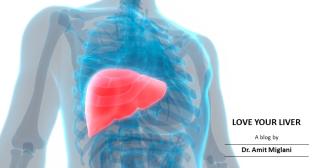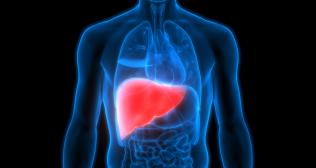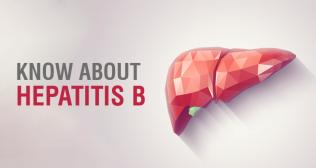
Effective Home Remedies to Stop Loose Motions Quickly
Dealing with Loose Motions and Finding Relief
Loose motions are simply defined as those bowel movements which are watery and soft in consistency. It can occur as a result of a number of causes such as eating contaminated food, or a mild viral infection. It could also be a symptom of a more serious cause such as an amoebic infection or a disease of the intestinal lining such as Crohn's disease. In the case of loose and watery stools, it is vital to stop the condition which is causing it to prevent the chances of the development of a running tummy. Hence, understanding the cause and taking the first step towards treating it is the most important. Loose motions often result in a lot of discomfort such as dehydration, uneasiness, and wear and tear of the perianal skin, if severe. It is always preferable to seek medical help in such a scenario, but in mild cases, home remedies can be used to get rid of the watery stools without any side effects or harm caused to the system.
Treatment of loose motions is often sought through drug regimens. However, using simple home remedies which require the use of a few known ingredients which are natural products and known to provide quick relief. Medication can often end up causing a few side effects and may also not be suitable for everyone.
Understanding Loose Motions: Causes and Insights
Loose motions or diarrhea are not just conditions you suffer from due to a junk food diet or routine changes. They are signs of the body flushing the system of harmful disease-causing germs. Although irritating when they strike for long, these loose motions run over a few hours, leaving the body free of harmful microorganisms. Typical symptoms experienced are urgency, frequency of evacuations and stomach cramps.
Common causes
- Infection: The majority of cases of acute diarrhea are due to viruses such as norovirus, adenoviruses, rotavirus, and astrovirus. Bacterial infection is another major cause of the condition. The most common bacteria causing diarrhea are E. coli, Campylobacter, Shigella, and Salmonella. These pathogens may enter the body through contaminated food or water leading to gastrointestinal disturbances.
- Food Intolerance: Food intolerance happens when the digestive system cannot properly digest certain foods, leading to symptoms like loose motion. Common intolerance includes lactose which is found in milk products and gluten found in wheat, barley and rye.
- Stress: Stress induces changes in the gut motility and secretions can exacerbate the symptoms. If stress is not managed timely, it may trigger severe conditions such as irritable bowel syndrome (IBS), which often includes symptoms of loose motions.
- Medications: Certain classes of antibiotics, such as tetracyclines, antimicrobials can irritate the stomach lining causing loose motions.
Insights
The above factors such as food, medication and stress can trigger inflammation of the gut and disrupt normal digestive processes, leading to symptoms like loose motions which is one of the body’s immune responses aiming to eliminate these irritants causing discomfort and digestive issues. During the mild phase several home remedies can help to manage and alleviate symptoms as a first line therapy. Let us understand more about it.
Top 3 Homemade Remedies for Loose Motions
As a first step to addressing this ailment, one should increase the patient's liquid intake. Other remedies include an oral rehydration solution (ORS) or other zinc-based medications.
Considering the reasons you medically need it, here is a list of the top 3 homemade remedies that you can make to treat these problems naturally at home. These remedies will help loosen your stool but also prevent loss of water and essential nutrients in your body. Some of these homemade drinks also function as antimicrobial agents that protect you and cure you from loose motion. These homemade drinks are both simple to make, and you do not have to go out shopping.
- Ginger Tea: A Soothing Solution
- Reduce Sweating and Ease the Symptoms of Digestive Disorder with this Tea
- Drinking ginger tea is one of the most famous beverages consumed in many countries; far from being only a good hot beverage, ginger tea is an effective remedy against almost all the stomach discomforts.
- Its effectiveness stems from gingerol, which is a bioactive substance with potent anti-inflammatory and antiemetic effects.
Soothing Mechanisms of Ginger Tea:
- Reduces Nausea and Vomiting: It significantly inhibits serotonin receptors located in the gut that are involved in emotions of nausea and vomiting. This makes ginger tea the most efficient resource for morning sickness, motion sickness, and sickness arising from chemotherapy.
- Calms Muscle Spasms: Ginger has antispasmodic effects, which means it can relax the gastrointestinal tract muscles. This helps to ease pain in the stomach and the large intestines, often resulting in indigestion and irritable bowel syndrome (IBS).
- Reduces Inflammation: Due to the anti-inflammatory compounds within gingerol, the lining of the stomach lining gets a soothing effect, thus eradicating the inflammation that results from gastritis, ulcers and many inflammatory bowel disorders.
- Promotes Digestion: Ginger stimulates the salivary glands and other enzymes, assists digestion, and prevents indigestion.
Easy Ginger Tea Recipe:
Ingredients:
1-inch piece of fresh ginger, peeled and thinly sliced
2 cups of water
Honey or lemon (optional, for taste)
Instructions:
Combine ginger and water in a saucepan.
Boil the mixture over high heat.
Reduce heat and simmer for 10-15 minutes.
Strain the tea into a cup.
If necessary, add honey or lemon to taste.
Tips:
- For a stronger flavor, grate the ginger instead of slicing it.
- You can store leftover ginger tea in the refrigerator for up to 3 days.
- If you don't have fresh ginger, you can use ginger tea bags.
Fenugreek Seeds: Natural Stool Firming
Fenugreek, a common traditional plant with several applications and forms, is widely used to reduce stool dampness and cure diarrhea. Fenugreek is commonly called methi by Indian natives has been used as a weight-loss supplement and has another valuable application in maintaining the free fatty acid contents of the body.
Consumption of fenugreek boosts desirable health effects; in particular, fenugreek seeds are a traditional herbal medicine used to soothe stomach complaints, especially diarrhea. The main reason for the health benefits of fenugreek lies in the spectrum of nutrients it contains such as protein, dietary fiber, flavonoids, dietary steroidal saponins, vitamins, and minerals. The fiber in fenugreek seeds absorbs water and swells up to form a gel-like consistency inside the intestines during digestion. Doing so can result in denser, controlled stools, and normalizes the loose stools.
Simple Usage Instructions:
Whole Seeds:
- Take 1 teaspoon of fenugreek seeds. Soak in water overnight.
- Drink the water in the morning and chew the seeds.
Powder:
- You could also grind up the seeds into a powder.
- Have 1/2 to 1 teaspoon of fenugreek powder with water or yogurt once or twice a day.
Yogurt with Fenugreek and Cumin: A Healing Blend
Yogurt is the natural remedy for soothing the stomach. When mixed with essentials like fenugreek or cumin, it is very effective to deal with loose motions. The fiber from the seeds of fenugreek aids to firm up the stool and cumin helps to reduce inflammation and improve digestion.
- A simple recipe of yogurt for loose motions
- Simply, take 1 cup of plain yogurt and put some salt in it and mix it with by beating it for some time.
- Add 1 tablespoon of crushed fenugreek seeds to the mixture.
- Add in ½ tsp of cumin powder.
- Mix well and may be taken two times a day.
What to Eat and Avoid During Recovery
Dealing with loose motions and confusion about the food to consume during the recovery. Here are some of the lists of foods to eat during loose motions
Table no.1: Diet for diarrhea recovery
Listen to your body. If anything doesn't feel right, just skip it. This is a temporary diet for "diarrhoea recovery"; you will return to your usual meals shortly.
Tips for Preventing Loose Motions in the Future
To prevent loose motions in future it is important to adapt certain lifestyle changes. These changes can be with respect to food habits, hygiene and environmental factors. Some of the common measures to avoid diarrhoea are.
- Ensure to wash your hands regularly with hand wash or soap particularly before taking a meal and after using the toilet. This simple measure can lower the chances of infection as it reduces the risk of ingesting harmful bacteria.
- Closely pay attention to what you eat. New food should always be chosen, and never select foods sold on the street since they are usually unhygienically prepared.
- Wash fruits and vegetables thoroughly to remove dust and pesticides remains. Drink clean, boiled, or filtered RO water to avoid consuming contaminated sources.
- On the nutritive aspect, be careful of your eating habits. Reduce on spicy and oily foods that can cause irritation to your stomach.
- Get rotavirus vaccine. As rotavirus is a commonly known virus to cause diarrhoea.
- Some foods like yogurt and fermented foods contain probiotics that help a person build a healthy gut, thereby strengthen the stomach health.
Note these are some of the small measures that go a long way in keeping our digestion system healthy and thus minimize the incidences of running tummy and loose motion.
When to see a doctor: Recognizing serious symptoms
Although most cases of acute diarrhoea are self-limiting and can be managed with frequent hydration and rest, there are certain symptoms that may indicate the need for medical intervention. Recognizing such symptoms of severe diarrhoea is crucial, as it can help individuals consult doctor and prevent further complications.
One of the primary signs of severe diarrhoea is the presence of blood or mucus in the stool. Acute bloody diarrhoea is considered a medical emergency and should be addressed immediately, as it may be a sign of a more serious condition, such as an inflammatory bowel disease, a bacterial infection, or even a life-threatening condition like a bowel obstruction or ischemia.
Additionally, individuals experiencing severe abdominal pain, persistent vomiting, dizziness or dehydration should seek medical attention
Conclusion: Finding Quick Relief with Home Remedies
Though loose motions are unpleasant experience they are quite manageable and quick action is possible if the person knows some of the home remedies. Safe, home treatment for the symptoms comprises ginger tea, fenugreek seeds, and yogurt mixtures are among the remedies with no side effects. These remedies are effective in preventing the formation of loose stools and have an added advantage of healing action on the gastrointestinal tract and replace lost nutrients. But it is advisable to continue taking fluids and be very observative to other signs that may be evident. If the condition is chronic or aggravated, it is important to consult a doctor to obtain appropriate treatment and did not worsen.
Frequently Asked Questions (FAQs)
What causes loose motions?
Loose motion or diarrhoea may be caused by several factors including viral (norovirus or rotavirus), bacterial infection which is caused by bacteria in food or water and food intolerances such as for lactose or gluten and certain medication such as antibiotics.
How can I stop diarrhoea naturally?
To stop diarrhoea naturally, make sure you take a lot of water, or plain soups, or an Oral Rehydration Solution (ORS) that has been prescribed by the doctor. To have firm stools you should take foods such as bananas, rice, applesauce, and toast, commonly referred to as the BRAT diet.
What are the best home remedies for diarrhoea?
The ways of how to treat loose motions are simple: one should drink more water to avoid dehydration; ginger tea is recommended; if necessary, fenugreek seeds to be taken to make the stool firmer. Probiotics such as yogurt assist in recolonizing the stomach with fresh beneficent flora. These remedies are easily tolerated in the stomach and are suitable only for mild infections.
When should one consult a doctor in case of loose motions?
You should go to the doctor if loose motions continue for more than two days, also if there is severe pain in the abdomen, fever, dehydration, blood or mucus in the stool.



















